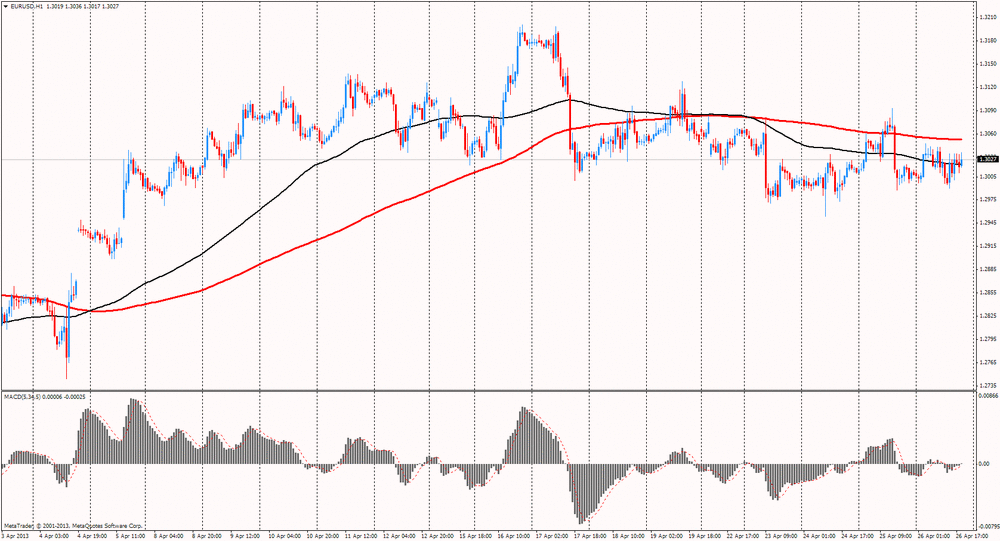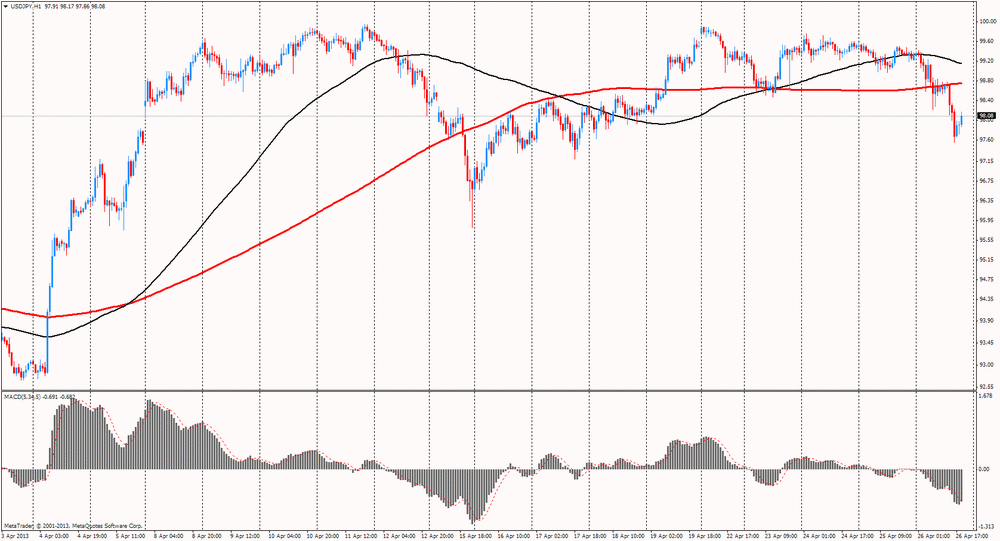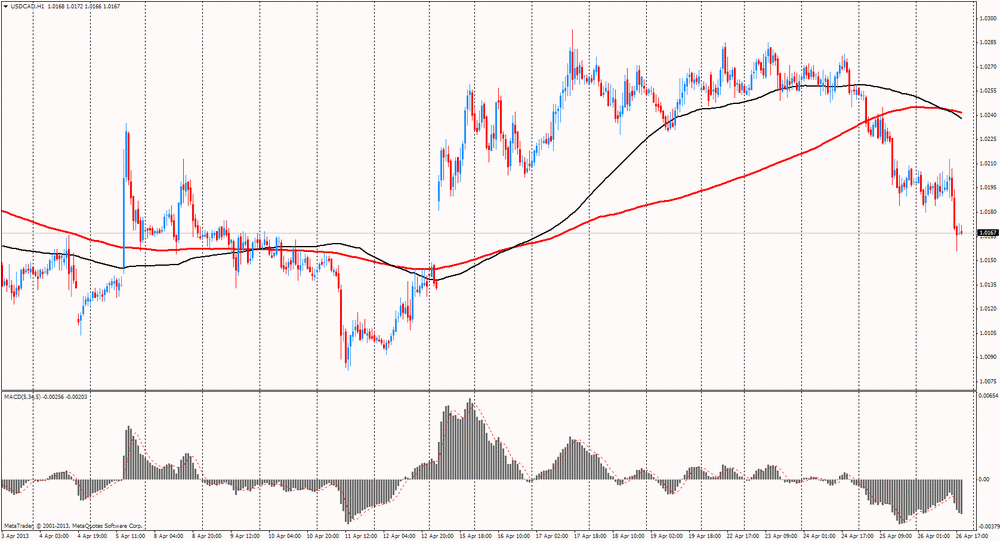- Analytics
- News and Tools
- Market News
- American focus: the euro exchange rate fluctuates
American focus: the euro exchange rate fluctuates
The euro exchange rate fluctuates in relation to the dollar, which had an impact on the reported data on GDP. According to the report, the gross domestic product expanded in the first quarter to 2.5 percent, compared with growth of 0.4 percent in the fourth quarter of 2012. Note that according to the average estimate of economists, the economy should expand by 3.1 percent. Meanwhile, it was reported that consumer spending continued to increase, thus speeding up the pace, and companies have increased their holdings after January 1, so it was introduced cuts in public spending. The data also showed that consumer purchases increased 3.2 percent from 1.8 percent in the fourth quarter, which was associated with a sharp increase in fuel prices. The government also reported that the housing sector continues to show signs of significant improvement, as housing costs rose by 12.6 percent, followed after a significant growth in the previous two quarters. With the exception of higher gasoline prices, which have since been dropped, inflationary pressures were contained. We also note that the price index for personal consumption expenditures increased by 0.9 per cent per annum, compared with an increase of 1.6 percent in the previous two quarters.
Add that today as it was announced that in April consumer sentiment index rose to 76.4, compared with a preliminary reading at 72.3. Note that according to the average estimates of experts, the index had to rise to 74.3. We also recall that at the end of March, the value of this indicator was 78.6. In addition, it was reported that the current conditions index rose to 89.9 from 84.8 reported in the preliminary reading, and the expectations index advanced to 67.8 from 64.2. Economists said that consumers are feeling more optimistic despite disappointing reports on the economy and the labor market, as well as news about reducing federal spending.
The yen rose significantly against the dollar on the background of the fact that in the course of today's meeting of the Bank of Japan decided to leave its monetary policy unchanged. Leaders of the Central Bank wants to make sure that mitigation actions taken earlier in April, will yield results and will be effective in the fight against chronic lowering of prices has been going on for 15 years. Recall that the management of the bank unanimously decided to maintain the policy of increasing the monetary base at an annual rate of 60-70 trillion yen, which is a new target level. This will allow for two years to double the amount of funds that the central bank will be to pump into the economy. In general, the decision of the Bank of Japan was expected. Meanwhile, today it was announced that the Bank of Japan raised its forecasts for economic growth and consumer prices, reaffirming his promise to double the interest rate for two years. Releasing its forecast for economic activity and prices, the central bank said that Japan's economy is expected to return to the path of moderate recovery around mid-2013. Meanwhile, the report noted that the improvement will be supported by domestic demand and growth in foreign economies.
Note that the Bank of Japan raised its forecast for gross domestic product growth for fiscal year 2013 to the level of 2.9 percent, compared with an estimate of 2.3 percent expansion, which was reported in January. As for the 2014 financial year, growth is projected at 1.4 per cent, which is considerably larger than previously thought - by 0.8 percent.
The Canadian dollar has grown significantly in relation to the U.S. dollar, after the Ministry of Finance reported that the surplus of the state budget of Canada was a record 1.56 billion Canadian dollars in February. The data indicate an increase compared to the same period a year earlier, when the balance of the state budget amounted to 1.49 billion Canadian dollars. According to the government's growth was due to increased incomes, tax revenues, payments on loans. In February, government revenues rose 2.4% to 10.82 billion Canadian dollars, while the cost of the program increased by 3.1% to 19.73 billion Canadian dollars. The financial costs associated with government debt fell by 5.5% to 2.14 billion Canadian dollars, which is a reflection of the low level of interest rates. In the period February-April 2013 in Canada was a decrease in the deficit to 11.81 billion Canadian dollars, which is significantly less than 12.63 for the same period in 2012. We add that the Canadian government expects a budget deficit for the fiscal 2013 of $ 25.9 Canadian dollars.
© 2000-2026. All rights reserved.
This site is managed by Teletrade D.J. LLC 2351 LLC 2022 (Euro House, Richmond Hill Road, Kingstown, VC0100, St. Vincent and the Grenadines).
The information on this website is for informational purposes only and does not constitute any investment advice.
The company does not serve or provide services to customers who are residents of the US, Canada, Iran, The Democratic People's Republic of Korea, Yemen and FATF blacklisted countries.
Making transactions on financial markets with marginal financial instruments opens up wide possibilities and allows investors who are willing to take risks to earn high profits, carrying a potentially high risk of losses at the same time. Therefore you should responsibly approach the issue of choosing the appropriate investment strategy, taking the available resources into account, before starting trading.
Use of the information: full or partial use of materials from this website must always be referenced to TeleTrade as the source of information. Use of the materials on the Internet must be accompanied by a hyperlink to teletrade.org. Automatic import of materials and information from this website is prohibited.
Please contact our PR department if you have any questions or need assistance at pr@teletrade.global.


















